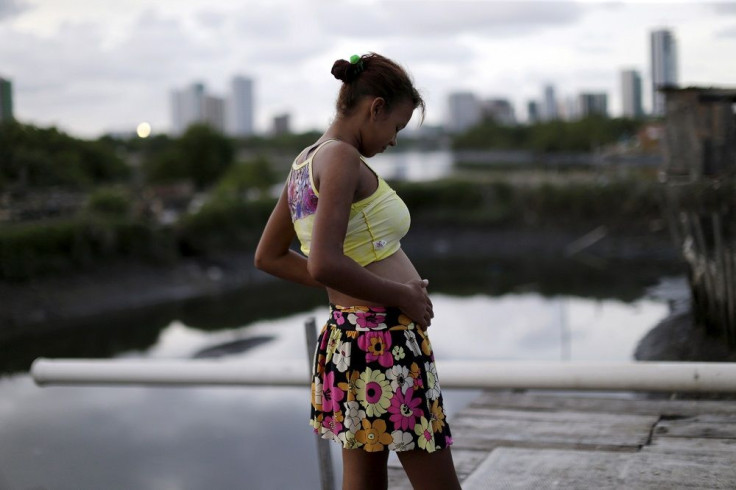South American pregnant women battle health and inequality issues with Zika virus outbreak

South American women continue their battle with the Zika virus as Colombian President Juan Manuel Santos revealed that in 25,645 recorded cases of Zika infections in the country, more than 3,100 pregnant women have been infected.
In Brazil, 4,000 cases of microcephaly are being studied to see how many of these are Zika-related. Seventeen of these microcephaly cases, a birth defect evidenced by smaller heads in infants and subsequent developmental problems, were found to be due to Zika infection, reports Reuters
Colombia, on the other hand, has currently no reported cases of microcephaly. However, the government continues to be alarmed with 500 Zika-related microcephaly projections that studies, from countries working against the virus, predicted.
Aside from microcephaly, the same Reuters report reveals that Zika infections could also lead to a rare neurological disorder called Guillan-Barre syndrome, where at least 1,000 could be infected. The Guillan-Barre syndrome can weaken muscles and lead to paralysis.
Fighting Zika
Actions taken by the Colombian government include fumigation in areas most affected by the epidemic like the Norte de Santander, where the highest numbers of Zika cases and birth defects based on the National Health Institute have been reported. Popular tourists’ destinations Cartagena and Santa Marta were also included in the list.
Abortion also made it to the list of actions to counter Zika-related birth defects in pregnant women. Abortion is a much-debated population control issue between activists and the government due to its moral and health implications in women.
Most regions in South America including Brazil, Colombia, Ecuador and El Salvador do not allow abortion, except in cases of rape, incest or if the mother’s life were at risk. Time Magazine reveals, in a special issue, that governments within the South American regions asked women to avoid getting pregnant to prevent the deadly effects of the virus from spreading to unborn children.
Now, while the predicament seems easy to solve, pregnant women, who may possibly be infected with the virus, seem to be torn between the strict abortion laws implemented within the region and the danger the mothers-to-be and their babies face. The plea to avoid getting pregnant is also an issue, especially for poor women who may not have the tools for planned pregnancies but are given the huge responsibility to prevent getting pregnant.
Embroiled issues
Human rights organisations around the world find the call to avoid getting pregnant an unfair solution to avoid passing on the infection to unborn children. As reported by Time, the World Health Organisation revealed that 18 percent of Latin American births belong to teenagers, while 50 percent are unplanned. Senior director to the Identity and Discrimination Unit at Amnesty International, Tarah Demant, told Time Magazine that while the call to prevent pregnancy may sound logical from a health perspective, women are not actually given any choice at all.
“Naïve” and “irresponsible,” as women’s rights activist and programs specialist for the Center for Reproductive Rights, Paula Avila-Guillen, called the recommendation. She explained that while there are nationwide calls to avoid getting pregnant, women do not have enough access to reproductive health and termination of pregnancies are not allowed. This puts women in a difficult position morally and in a health perspective.
Unfortunate as it may be, the sad reality is that many women are robbed of their control and choice over pregnancy, due to the serious number of rape, sexual violence and forced or banned abortion cases. Guttmacher presents Abortion Facts in Latin America, wherein at least 10 percent or 900 maternal deaths were recorded due to unsafe abortion in 2014. Women hospitalised for treatment of complications from unsafe abortions reached around 760,000 in Latin America and the Caribbean.
While governments work toward solutions for the Zika outbreak, many of these may not be taking women’s choices and their freedom over their bodies. More organisations are working to create choices and opportunities for women. According to Mogul , groups around the world, are working towards creating change for women that is sustainable and substantive including Human Rights Watch, United Nations Women’s Watch , and U.S. National Committee for U.N. Women, as represented by board president Lalita Janke .
“Gender inequality is not only in the workplace, in the streets or in the domestic space, but it is also present in the responses that are crafted in crises like this. Today, similar to the proposed solutions to the Zika outbreak, women’s access to resources and to decision-making processes are cut off. Women, who bears the brunt of the burden in their vulnerable positions, must not be treated as collateral damage. They must be given solutions that do not take away their choices, directly or indirectly,” Lalita Janke said in an email.
The battle against the deadly Zika Virus is more than fighting its adverse-effects on pregnant women and the health risk it poses on unborn children. It is fighting against for women’s vulnerability when it comes to health choices, which is very telling of their disturbing place in modern society. While the government seeks immediate resolution on the case, women are given quasi-choices that ultimately disregard their freedom and control over their own bodies. With the help of human rights organisations and people defending women’s rights, women are hopefully given a fairer chance in battling the Zika virus and other health hazards and most especially, inequality.





















